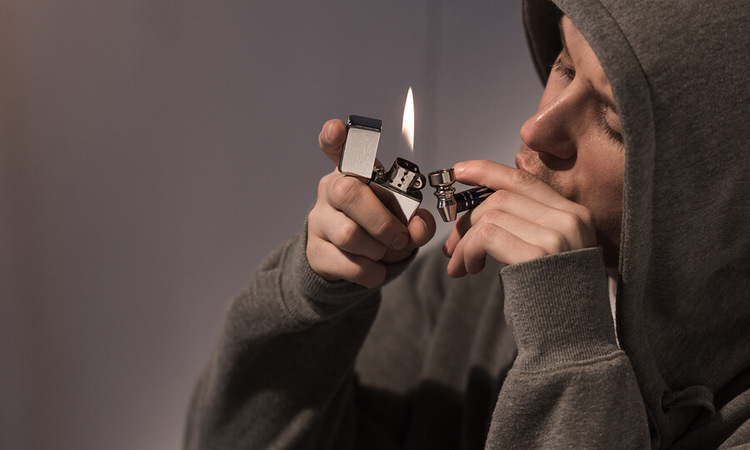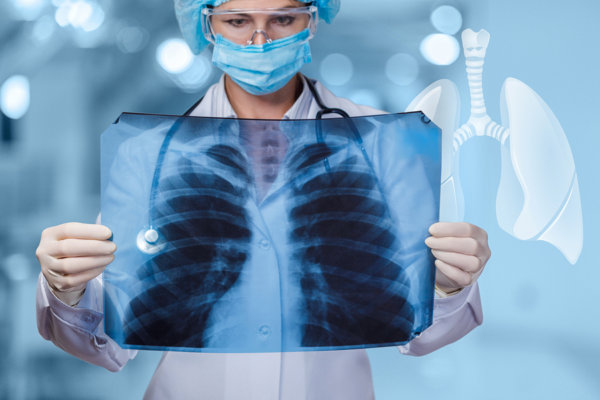
It may often require diligence to recognize a crack cocaine abuse problem in a loved one, but knowing what signs to look for is critical. Signs and symptoms often gradually become more severe and evident to others over time as the individual descends deeper and deeper into the chasms of addiction. Eventually, they will become virtually impossible to overlook.
Due to chemical and emotional instabilities caused by crack cocaine, erratic and volatile mood swings are common among those who use it regularly. When a person is struggling with a crack cocaine abuse problem, they may act cold and distant to those close to them, and become very different from the person they once were.
When this occurs, loved ones who are pushed away may not be able to recognize the changes in their loved one’s behavior as they manifest. Unfortunately, the more severe these changes become, the more urgently intervention is needed.
What Is Cocaine and Crack Cocaine?
Cocaine is a central nervous system (CNS) stimulant that, when used, produces a surge of dopamine in the brain. This action causes a brief boost of euphoria, energy, increased alertness, and hyperactivity. These effects, although short in duration, are the reason why cocaine is so addictive. Because of the brevity of the high, persons often “binge” or repeatedly use cocaine in rapid succession, and are therefore at a high risk of developing a dependence.
Crack cocaine is the crystallized form of cocaine, which is usually found as a powder. Crack is generally found as solidified blocks or crystals that range from white to pale rose or yellow in color. While powder cocaine is usually snorted, crack is heated and smoked. Crack is the most potent form of cocaine and also the most dangerous. It is between 75% and 100% pure and far more powerful than powder cocaine.
Signs of Crack Use

Initial signs of crack use may be subtle when compared to full-blown addiction and can vary widely in terms of severity. The mental and physical signs of crack use become increasingly apparent, along with the behavioral effects of dependence and addiction.
Some several signs and symptoms suggest a person has a cocaine use disorder. Physical symptoms may include the following:
- Dilated pupils
- Dry mouth and throat
- Hoarseness
- Twitching or shaking
- Headaches or migraines
- Stomach aches and nausea
- Elevated body temperature
- Accelerated heart rate and respiration
- Insomnia or hypersomnia
- Loss of appetite
- Hallucinations
- Burns on fingers
- Cracked or blistered lips
- Lethargy and fatigue
Mental and emotional signs include the following:
- Anxiety
- Depression
- Hyperactivity and hypervigilance
- Social isolation
- Irritability and agitation
- Reduced attention span
- Severe mood swings
- Paranoia
Behavioral signs may include the following:
- Strange or abnormal behavior
- Secretiveness
- Providing suspicious answers to questions related to use
- Social isolation or neglect of old friends in favor of new ones
- Neglecting important obligations involving school, work, or family
- Impulsivity
- Manic, hyperactive behavior
- Repeatedly asking friends and family to borrow money
- Stealing money or personal possessions from others
- Selling crack or other drugs
Crack, when combined with harmful adulterants or other drugs, becomes even more dangerous. It’s not uncommon for individuals to use cocaine with alcohol, benzodiazepines, or opioids such as heroin. This may be done in an effort to intensify a high or to quell symptoms like anxiety and help a person to “come down” from its effects. In doing so, however, these individuals are increasing their risk of dangerous health complications, overdose, and sudden death.
Crack Addiction
A crack or cocaine habit essentially hijacks the user’s brain and drives him or her to engage in compulsive drug-seeking behavior despite experiencing adverse consequences as a result. These outcomes are definitely red flags that point toward drug addiction, and may include the following:
- Strained or broken relationships
- Ongoing legal problems or incarceration
- Being suspended from school or dropping out
- Declining performance at work or school
- Quitting or getting fired from a job, loss of employment
- Extreme debt or bankruptcy
Tolerance and Dependence
Crack cocaine abuse and addiction are two disorders on the same spectrum but are not the same. Addiction is hallmarked by dependence, tolerance, and compulsive drug-seeking behavior. Tolerance and dependence develop gradually over time as the brain changes and adapts to crack’s continual presence.
Tolerance can begin to develop during the early stages of use and increases over time. Tolerance is a condition in which users will need higher and higher doses of a substance to achieve the effect they are seeking. Both crack abuse and full-blown addiction can lead to physiological and mental distress that may result in emergency department visits, hospital stays, and psychiatric interventions to address.
Dependence is characterized by withdrawal symptoms when the user attempts to quit. This response is the result of the body trying to re-adapt to life without the presence of cocaine, from which it has now become quite accustomed.
Crack Withdrawal Symptoms
As noted, when a person has developed a chemical dependence on crack cocaine, withdrawal symptoms will onset if the drug is suddenly discontinued.
Symptoms associated with crack withdrawal may include the following:
- Depression
- Fatigue
- Seizures
- Cardiovascular problems
- Intense cravings for crack cocaine
- Excessive sleepiness
Long-Term Effects of Crack Use

The longer crack cocaine abuse continues, the higher the risk of damage to the brain and other organs. A person who has used crack for a prolonged period may need medical and mental health assistance for a variety of problems for the rest of their life. And, unfortunately, some of the negative consequences caused by crack cocaine use can be permanent.
Long-term health consequences may include the following:
- Difficulty swallowing
- Lung damage
- Heart disease
- Seizures and convulsions
- Profound weight loss
- Malnourishment
- Sexual dysfunction
- Impotence
- Gastrointestinal problems
- Bowel deterioration
- Reproductive complications
- Movement disorders
Chronic crack use has also been associated with profound mental distress, such as paranoia and hallucinations. Some research has found that long-term cocaine use can impair cognitive functions such as memory and motor control. Furthermore, chronic abuse is closely linked to heart failure and premature death.
Signs of a Crack Overdose
Although crack use can be dangerous at any dose, it is particularly risky when consumed in excessive amounts or with other drugs or alcohol. The addictive properties of crack make it easy to overlook the excessive amounts one is using to maintain a high, which is very short in duration.
Important: An overdose of cocaine is considered to be a medical emergency. If you suspect that someone you know is overdosing on crack or any other substance, call 911 immediately or visit the nearest emergency room.
Signs and symptoms of a cocaine or crack overdose can include the following:
- Delirium
- Delusions
- Panic
- Hyperthermia
- Seizures
- Respiratory arrest
- Cardiac arrest
- Cerebral hemorrhage
- Shock
- Kidney failure
- Stroke
- Coma
Treatment for Crack Addiction
Research has shown that crack addiction is most effectively treated using a long-term, comprehensive approach to addiction. Recovery By The Sea offers customized, evidence-based treatment that includes services vital to recovery. These include psychotherapy, counseling, group support, aftercare planning, and much, much more.
Recovery from any addiction is a lifelong endeavor, but no one should have to do it alone. We can intervene to help people free themselves from the shackles of addiction and reclaim the happy and fulfilling life they deserve!
READ THIS NEXT: Signs of Cocaine Use